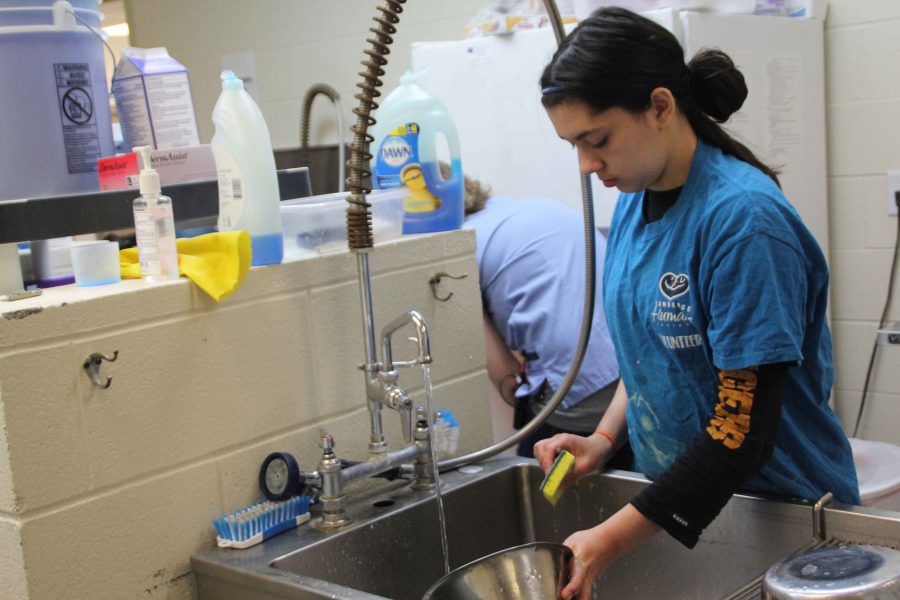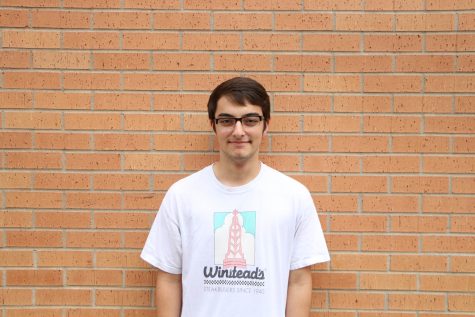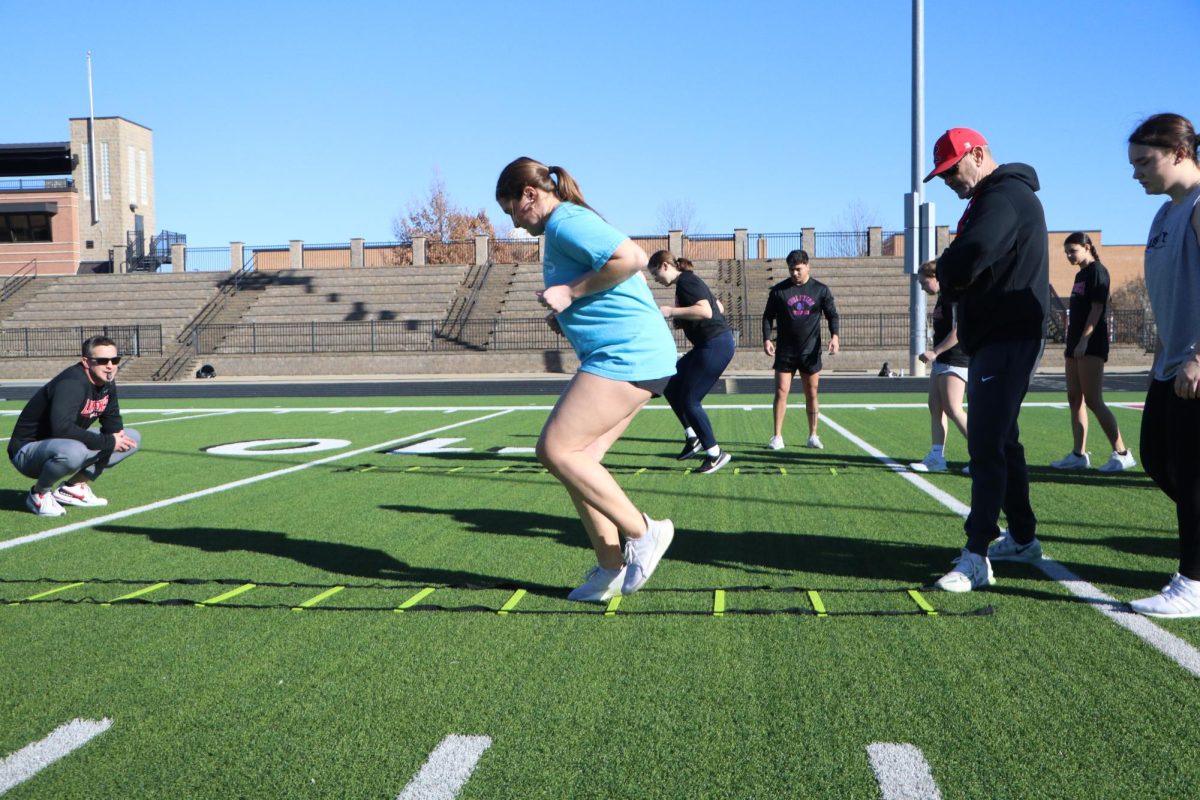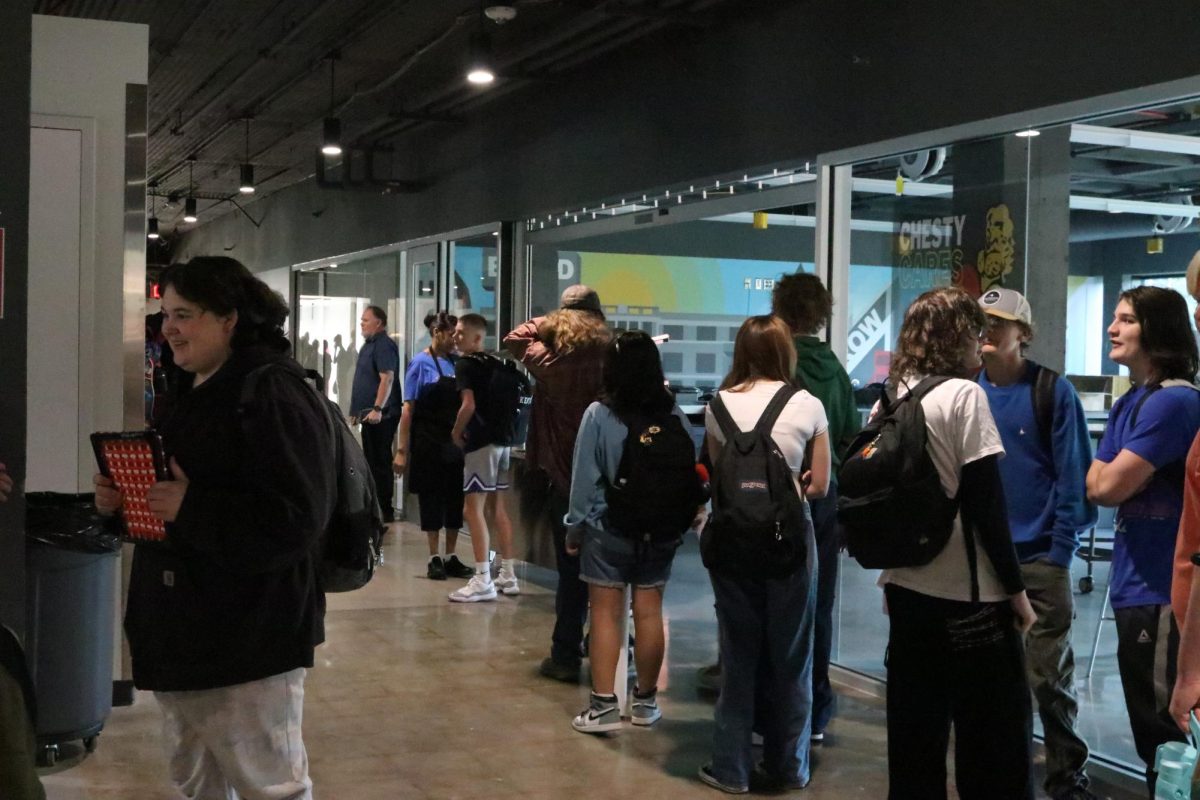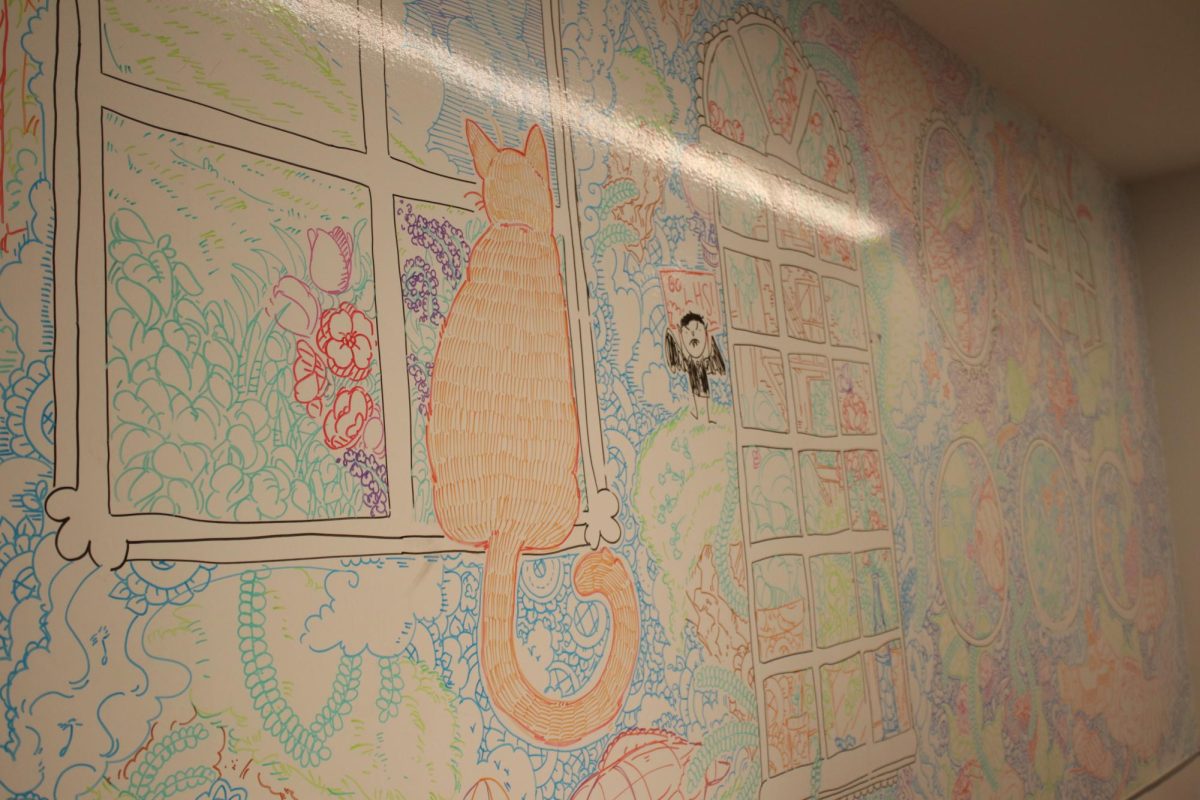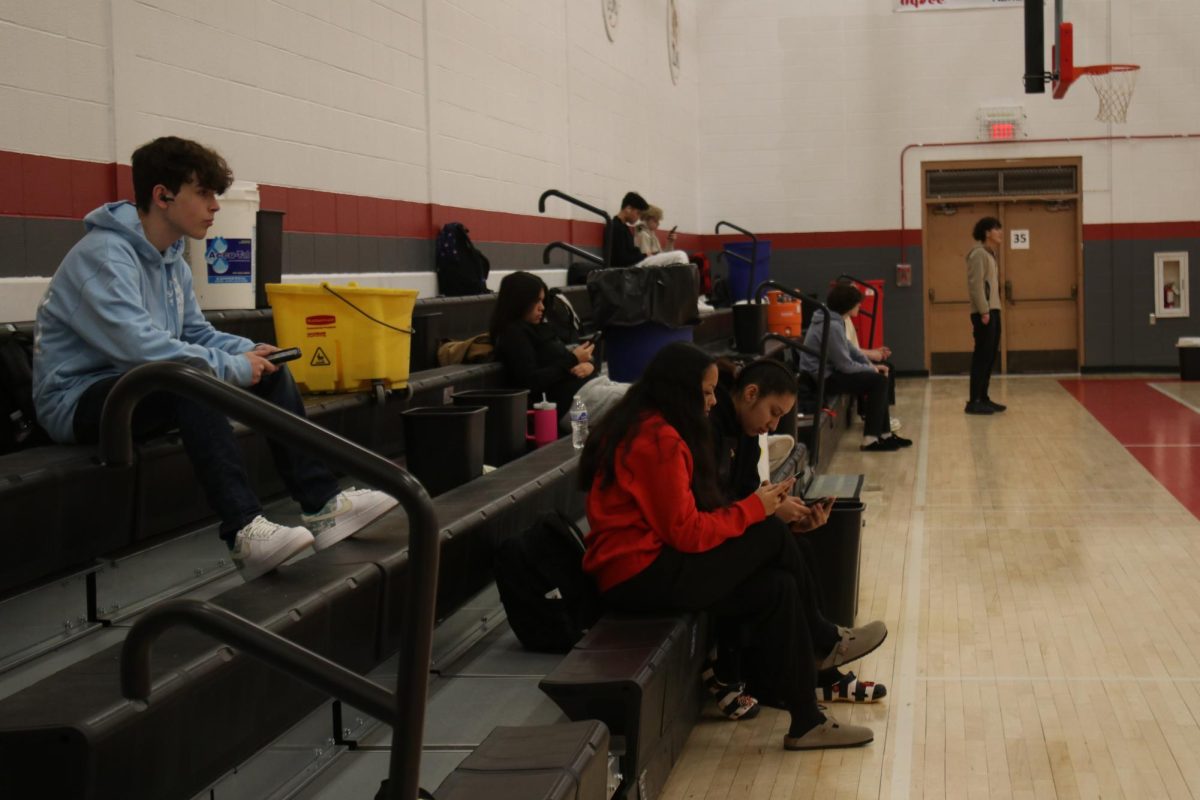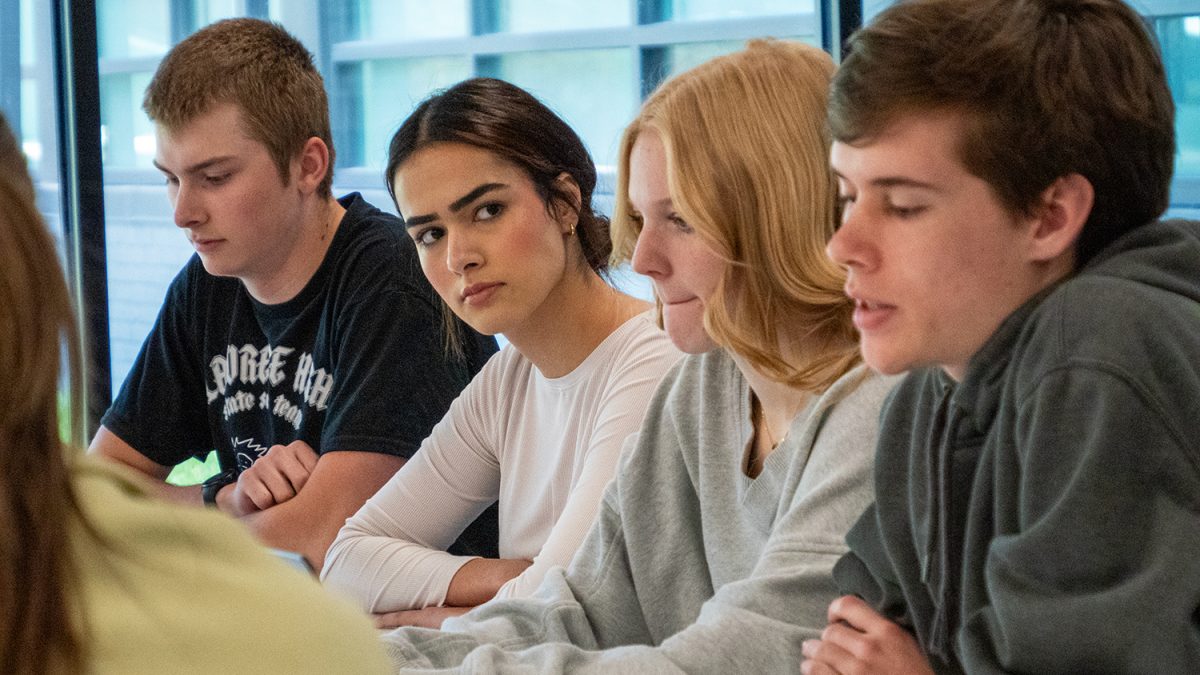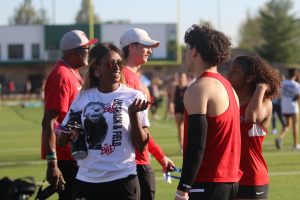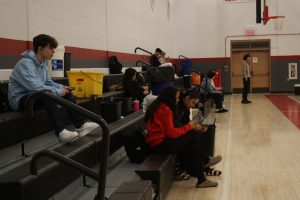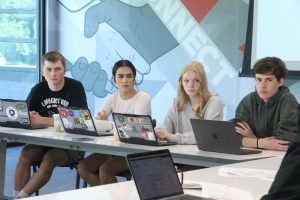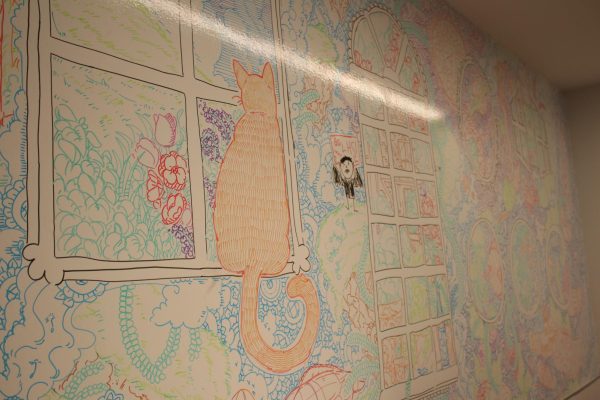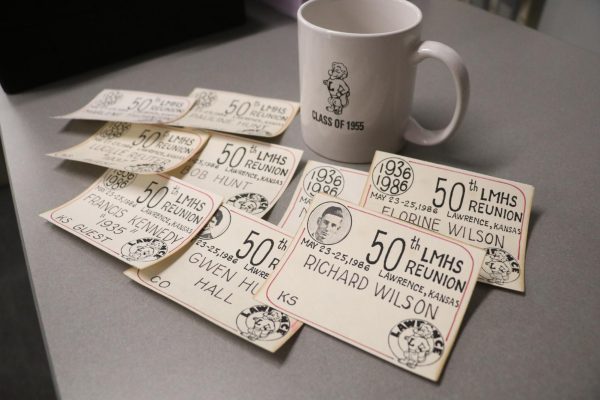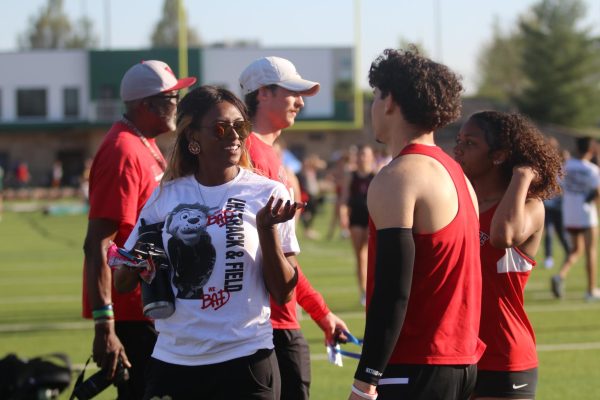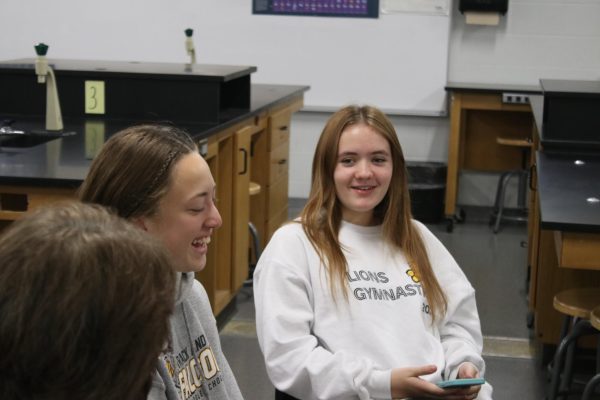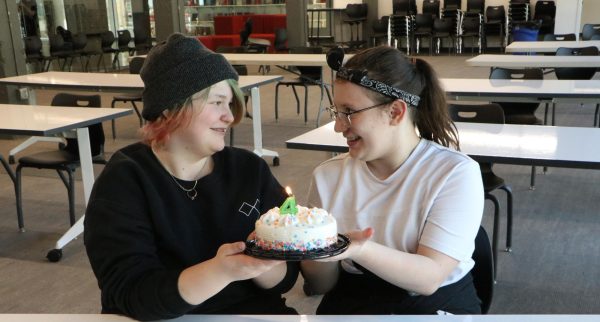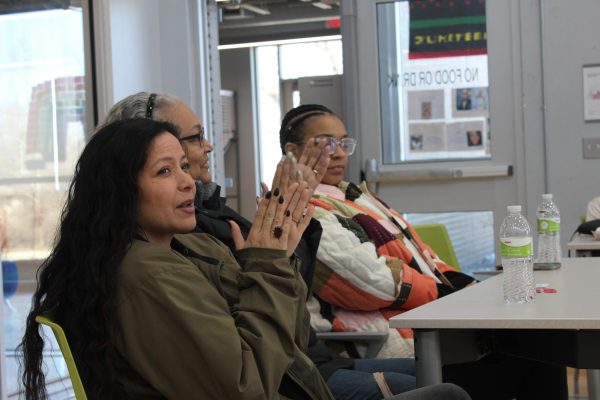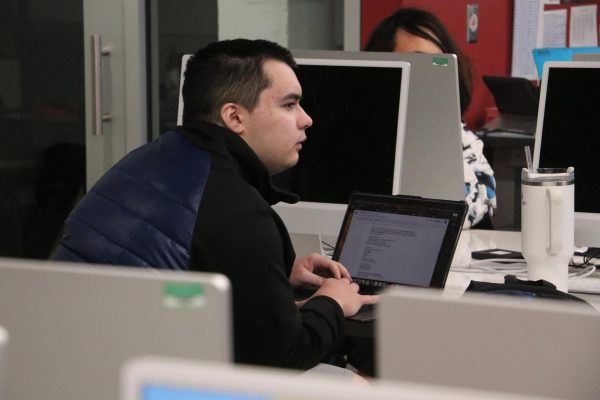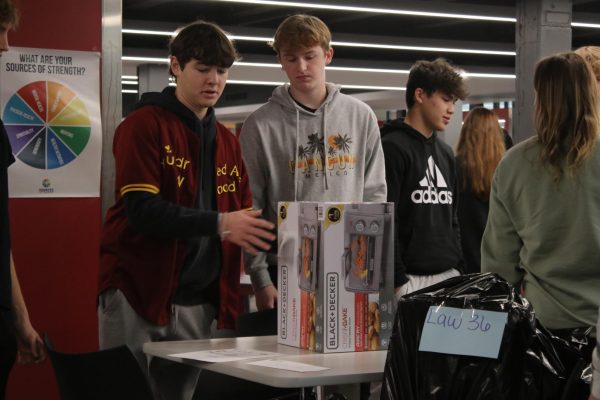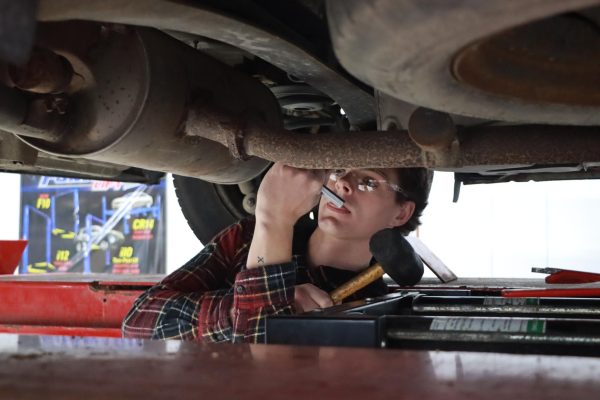Students gain work experience
The work experience program allows students to develop job skills on and off campus
Senior Shyanne Garcia works at the Lawrence Humane Society.
April 28, 2016
Looking for a first job can be a challenge for anyone. That is why the Work Experience Program at LHS works to help bridge the gap for students with special needs who need extra help preparing for the work world.
“[The Work Experience Program] gives students an opportunity to learn some of the softer skills of the workplace,” Work Experience Program coordinator Matt Klein said. “It talks about showing up on time and talks about what you need to do to be successful at any job — to necessarily the technical skills behind any specific career. It’s about learning the basic skills about a job before going out into the quote unquote ‘real world.’ ”
Students often begin working on the school campus, mainly in the Lion’s Laundry room or with custodial staff.
“I started out working in the Lions Laundry Room with Shelly Vann,” said senior Alex Pickerel, who is now working at Westlake Ace Hardware. “[One of the skills I learned was]… communication and lots of effort to help with that.”
Students who want or need off- campus experience can work at local businesses, such as Westlake Hardware or the Humane Society.
“I work at the Humane Society, and I clean the dishes for the dogs and put them away [afterwards],” senior Shyanne Garcia, another student in the program, said. “I only work second and third hour.”
After students have obtained experience on campus, they often begin to work at a local business in their area of interest.
“If students do a good job on campus but they need more vocational services, that is when we start partnering with businesses in the community to provide continued learning opportunities for work experience,” Klein said.
Pickerel said he doesn’t know what career he wants to be involved in long-term. However, he still carries important lessons from his experience working in the LHS laundry room and the program in general.
“I’ll work as hard as I can, I mean you just have to follow directions, and sometimes you need to help other people out, too,” he said. “Those are both important for really any kind of job.”
As soon as he is done in high school, he plans to get involved with one of many community-level organization which will continue to help him find a job that is right for him.
Community Living Opportunities is one of the primary organizations helping young adults with special needs find work statewide. The company serves a similar role as the Work Experience Program, but works with people after they have graduated high school.
“CLO contracts with Vocational Rehabilitation [a division of the Department for Children and Families] to provide job placement services to clients who have open cases with them,” said Deb Engstrom, who is a Supported Employment Coordinator at the Lawrence branch of CLO. “When I work with employers, I want them to know that an individual with a disability has the potential to be an asset to their business.”
Just as the Work Experience Program does at LHS, CLO works to help people with disabilities figure out what career they would like to be involved in and contact potential job opportunities. Calls are made to local employers to find a work environment that is a good fit for the client they are working with.
“Sometimes, we can do formal inventories, sometimes we gather anecdotal information from people who are familiar with the client and sometimes we spend time with the clients in different environments to determine the environment where the client will be most successful,” Engstrom said.
Just as students must be prepared to work effectively at any job, there are ways that employers can meet students halfway to help them feel comfortable in a position that is brand new to them, Engstrom said.
“Employers should know that people with disabilities often have difficulty with communication [and] so require clear, concise instructions and as much consistency as possible,” she said. “Also, they should be given feedback regularly so that any mistakes they are making will not become a learned pattern that is difficult to unlearn.”
In order to make certain that students have the right workplace skills when they’re old enough to have a job, Engstrom said work experience opportunities are already introduced in elementary and middle schools here in Lawrence, in addition to Work Experience Programs at both LHS and Free State.
According to Klein, vocational training experience like what is provided by the Work Experience Program is imperative to students with disabilities.
“I think if you’re in the school, the beauty of this program is the structure and the support that comes with it,” he said. “You’re with a job coach, and then hopefully throughout your experience, your job and your placement, they can eventually step back and give [the student] a little more independence. That’s generally part of the learning curve of the job.”



